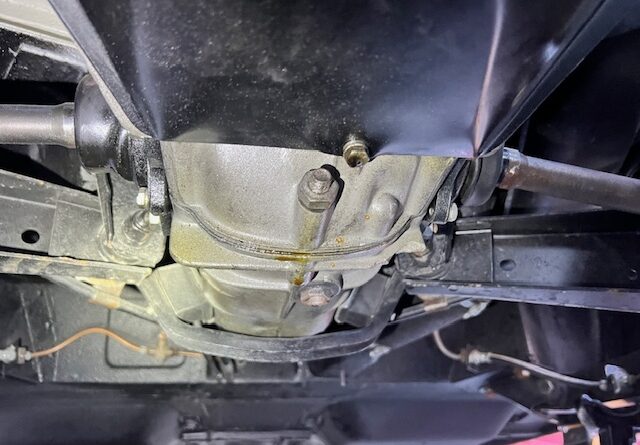Signs Your Car Might Have an Oil Leak: A Quick Guide to Diagnosis
Determining whether your car is leaking oil can involve a few observations and checks. Here are some signs to help you assess if your car may be experiencing an oil leak.
When you entrust your car to the care of a technician for service or repair, one of the foremost checks is on the engine oil – an automotive essential. Imagine a car refusing to start or leaving you stranded with a hefty repair bill; that’s the risk of neglecting this vital fluid.
Engine oil is akin to gold for your car’s engine. It serves as a lubricant for the myriad moving parts inside, preventing friction and unnecessary wear. It traverses the engine, purging old oil and sludge that accumulate over time. Beyond lubrication, it plays a crucial role in cooling hot engine components and upholding the cleanliness of finely-tuned elements.
The urgency of addressing an oil leak, or even suspecting one, cannot be overstated. Time is of the essence. Delaying attention to this issue is a perilous decision that may lead to regrettable consequences. Don’t underestimate the significance of timely intervention in preserving your car’s performance and preventing potential damage.
Check Under the Car:
Look under your car where you regularly park it. If you notice fresh oil spots or puddles, it could indicate an oil leak. The color of the oil can vary, but it is commonly brown or black.
Inspect the Engine Bay:
Pop the hood and inspect the engine bay. Look for any visible signs of oil around the engine, especially near gaskets, seals, or connections. A flashlight can be useful for better visibility.
Check the Oil Level:
Ensure that your car is parked on a level surface and the engine is turned off. Locate the oil dipstick, pull it out, wipe it clean, reinsert it, and then check the oil level. A sudden drop in oil level may indicate a leak.
Examine Exhaust Smoke:
If you notice blue smoke coming from the exhaust, it could be a sign of burning oil. While this doesn’t directly confirm a leak, it suggests potential oil consumption issues that might be related to a leak.
Monitor Oil Consumption:
Keep track of your car’s oil consumption. If you find yourself consistently needing to add more oil between scheduled oil changes, it could be a sign of a leak.
Smell of Burning Oil:
If you detect a burning oil smell while driving, it might indicate that oil is dripping onto hot engine components. This could be a sign of an oil leak.
Oil Warning Light:
If your car has an oil pressure warning light on the dashboard, pay attention to it. A sudden or persistent drop in oil pressure may be due to a leak.
If you notice any of these signs, it’s advisable to have your car inspected by a qualified mechanic. They can pinpoint the source of the leak and recommend the necessary repairs. Ignoring an oil leak can lead to engine damage and decreased performance over time.
Buying a used VW. Vauxhall, BMW, Jaguar, Ford, Volvo, Range rover, Bentley, Aston Martin, Porsche, Ferrari, Lamborghini, Maserati, Hyundai

